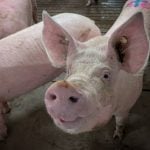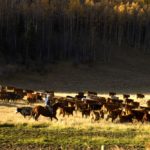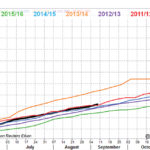
Comment

Ratifying CETA was the easy part
Now comes the hard work of dealing with domestic effects, like opening markets to dairy imports

Livestock’s bleak industrial future
There’s not even a hint of light at the end of the tunnel

Soybean yields may be major thorn in bulls’ sides: Braun
All signs are pointing to a bin-busting U.S. soybean crop that could upend markets

U.S. farmers should vote like it’s 2018
The free enterprise rhetoric of U.S. farmers and farm groups may be about to catch up to them

Innovation must continue to drive equipment manufacturing
Smarter government policy that reduces administrative costs and lowers trade barriers can play an important role

Food deflation troubling
Consumers may welcome cheaper food, but it spells challenges for the food industry right through to the primary producer
Comment: Closing the barn door after the fact
Sudden concern about mergers on the part of politicians is too little, too late

U.S. wheat shippers putting lousy 2015-16 behind them: Braun
American wheat sales are rebounding after abundant low-cost supplies hit them hard last season

Comment: Port of Churchill is worth saving
Public ownership may be the best and only answer to preserve this national asset
Monsanto is dead. Now what?
The lightning rod for resentment won’t be there to kick around anymore


